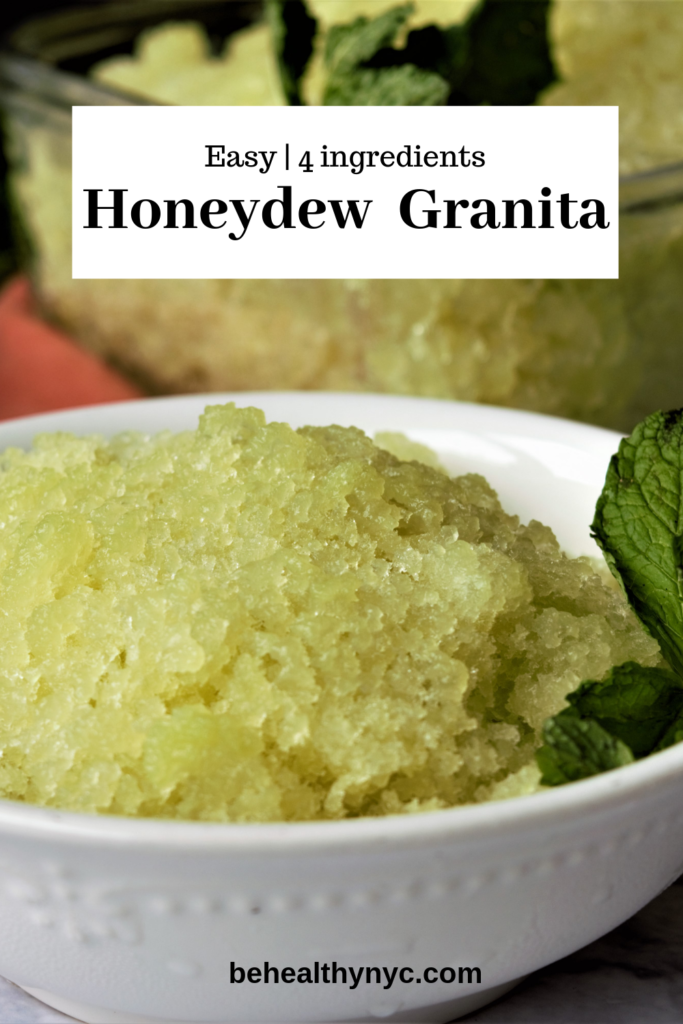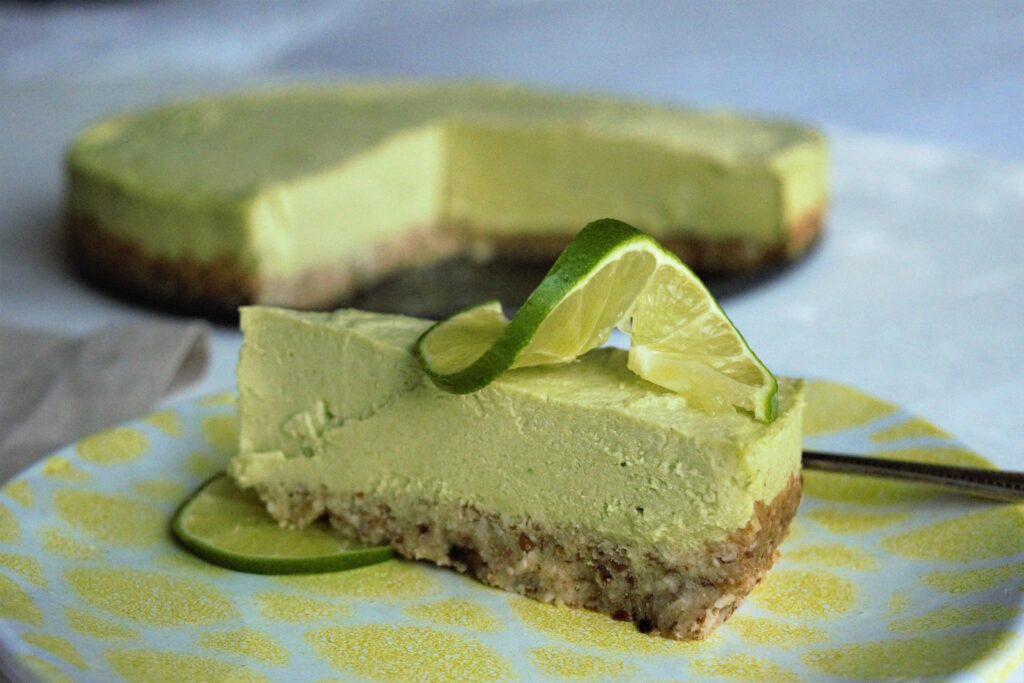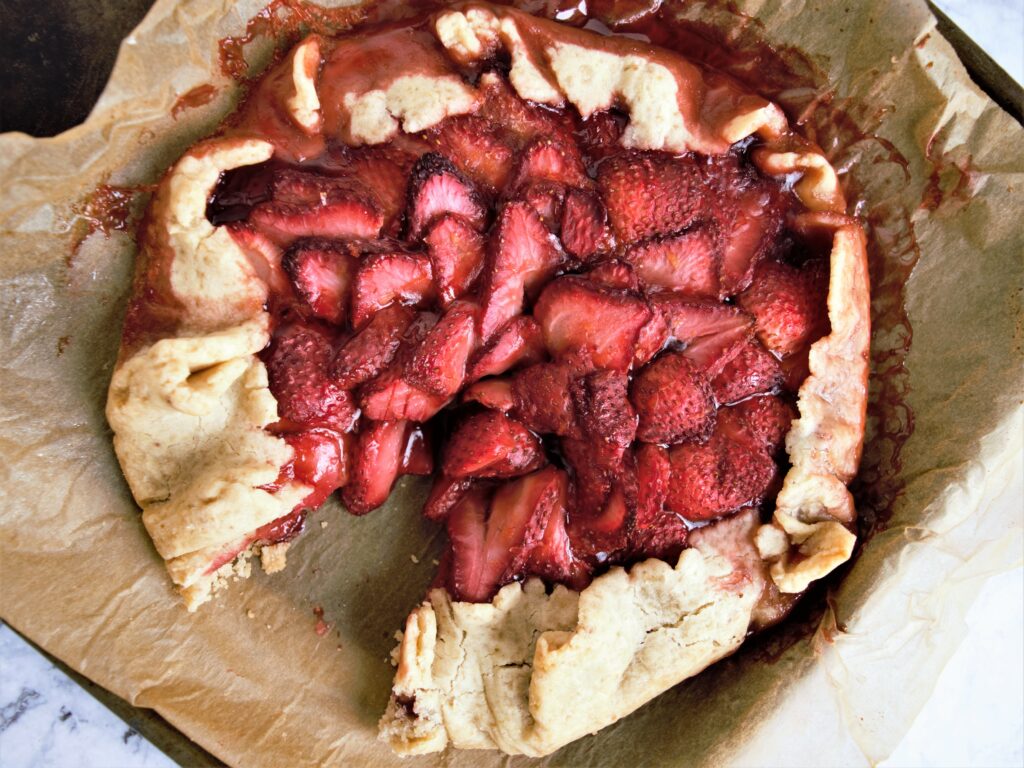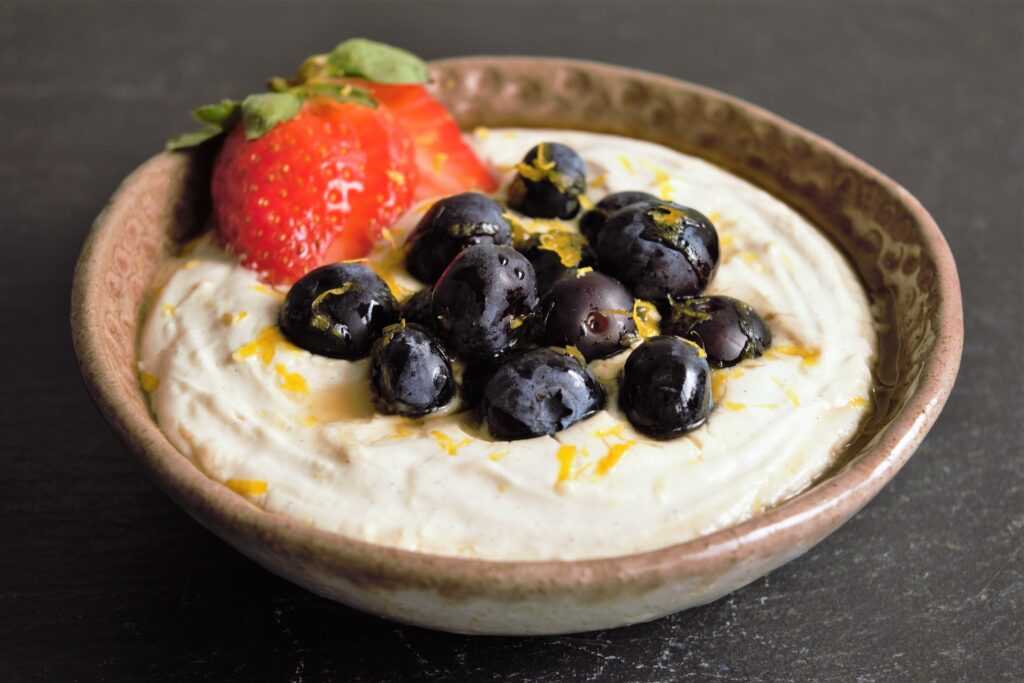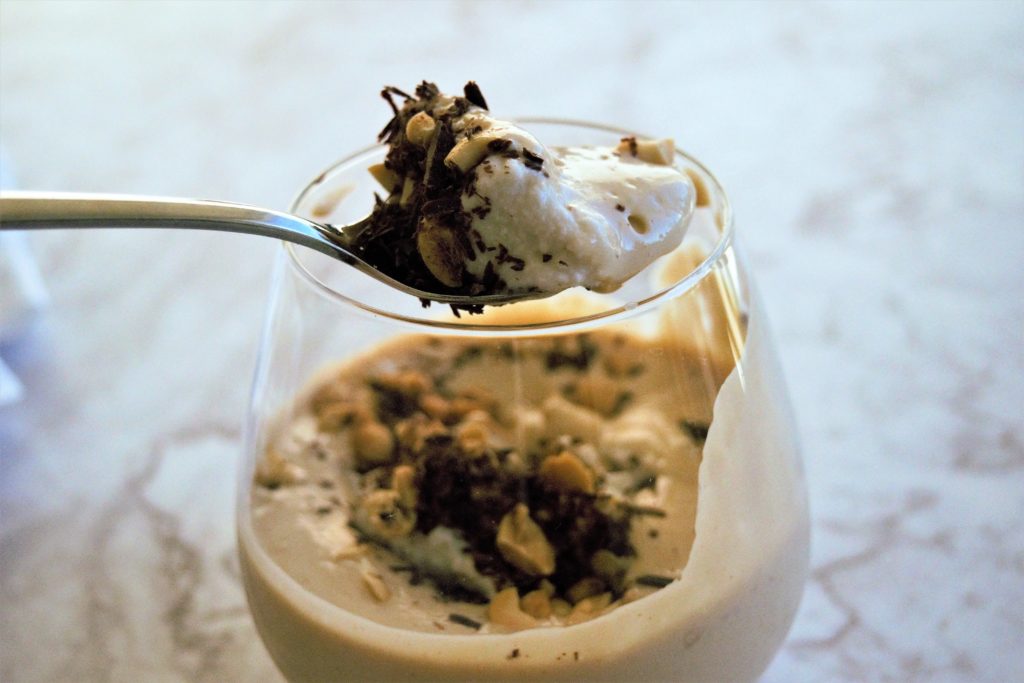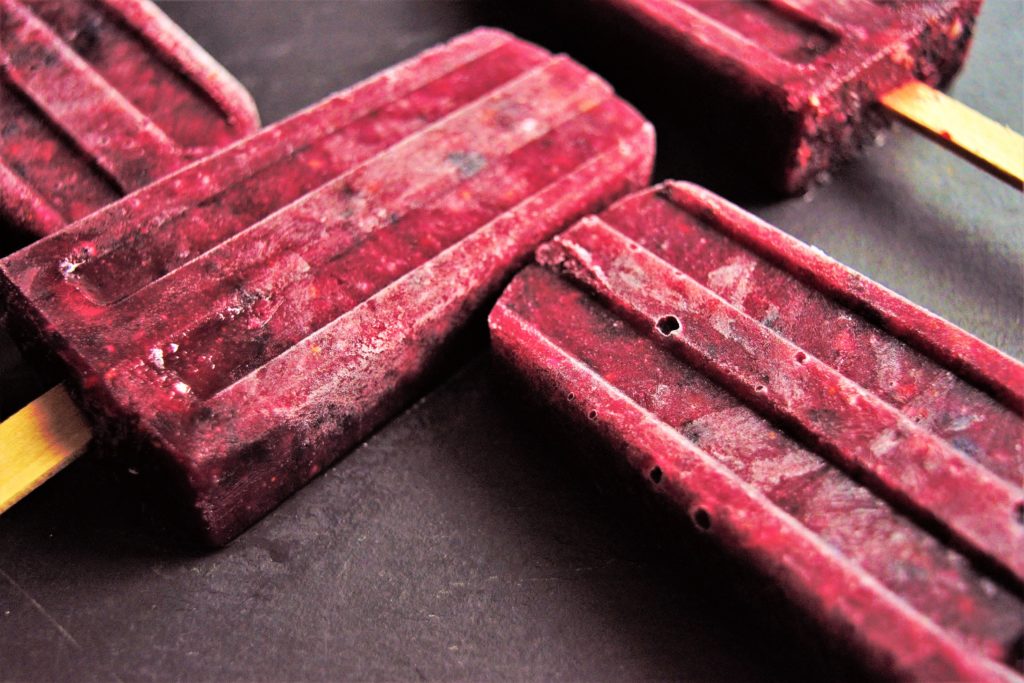Honeydew and Mint Granita
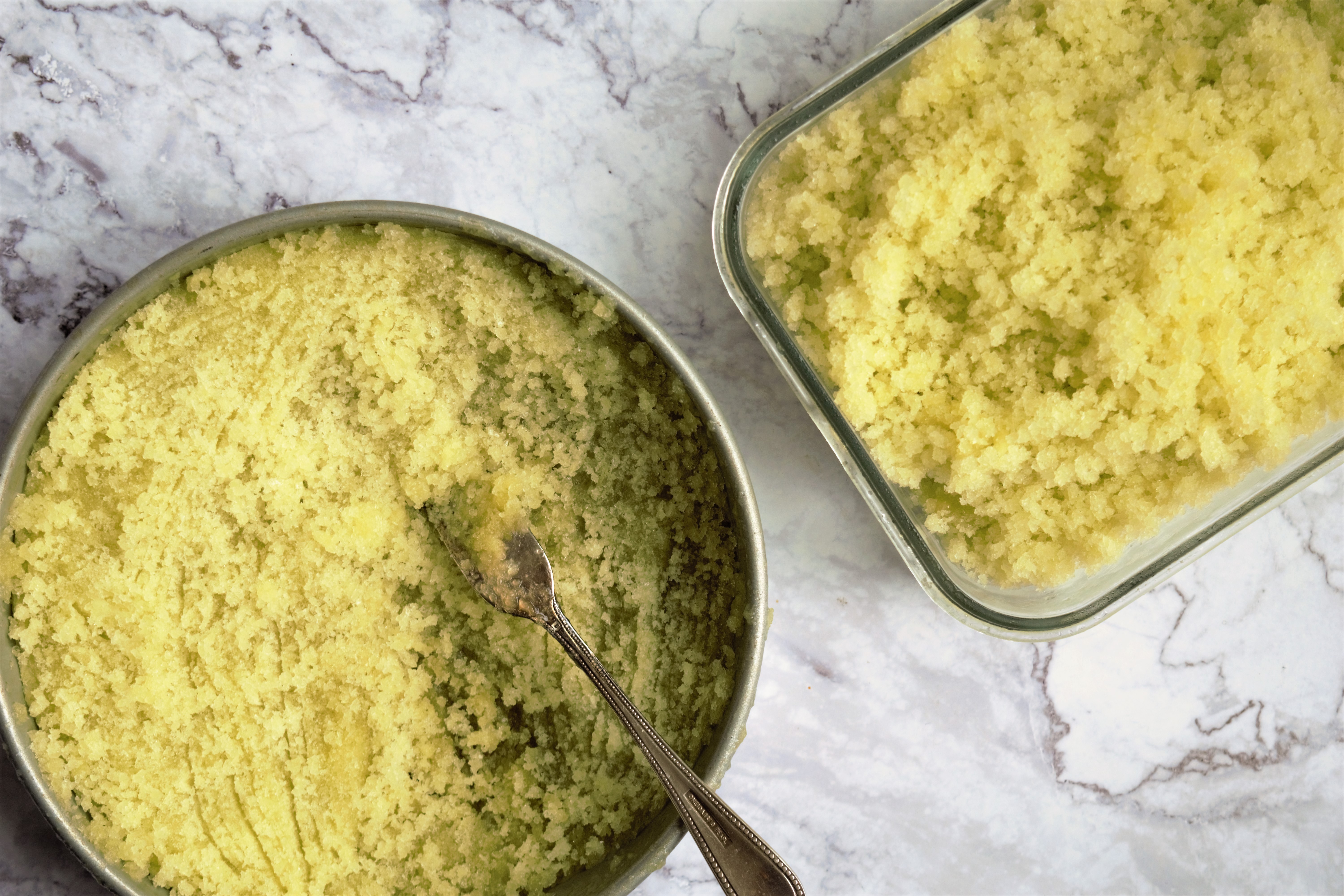
Summer without honeydew and mint granita is a deal breaker! There is nothing more refreshing and satisfying. You should always have a double batch of this easy recipe in your freezer to satisfy a sugar craving with a refreshing snack or make a sparkling agua fresca.
This delicious honeydew and mint granita recipe is from a Food Network Magazine
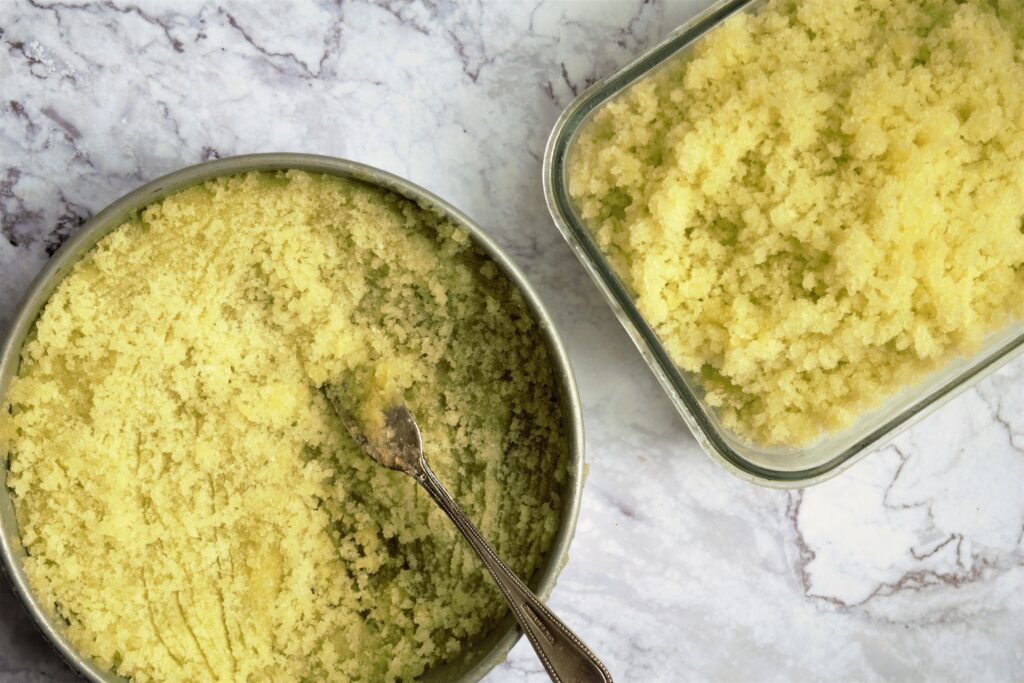
melons
This fruit is among the most delicious vine fruits. They are so juicy and sweet, varying in shape, skin, and flesh color. The wide varieties of melons have different degrees of intoxicating sweetness.
There is an old rule that states “eat melons alone, or leave them alone!” Melons and all the fruits in this family (watermelons, cucumbers, and even zucchini and pumpkins) should be eaten alone. They digest very rapidly, and if combined with other fruits or vegetables, it slows their digestion, causing fermentation. Fermentation can cause a lot of gas and indigestion for some people, so it is better to have this dessert on an empty stomach. It is my favorite summer breakfast.
Types of melons
There are hundreds of varieties of melons, many of which do not have common names. They are best found fresh in markets and farmers markets in the peak of summer.
Cantaloupe
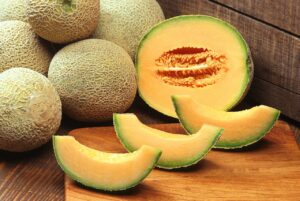
This is a round, medium-sized variety of melon with a dull yellow-beige, netted skin and blush to bright-orange flesh. Cantaloupe is very fragrant and so sweet.
Charantais
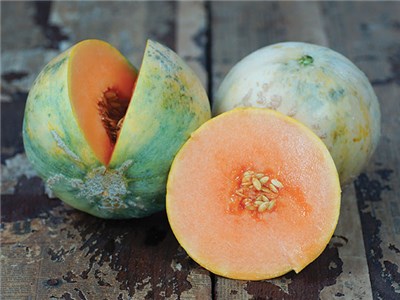
This is a small round variety of melon with smooth, pale-green skin with dark stripes and sweet orange flesh. It’s one of the choicest melons when available.
Galia Melon
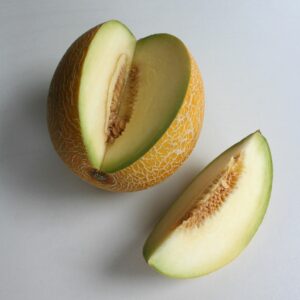
This is a small, broad, oval-shaped variety of melon with netted skin that appears to “stretch out” when ripe. The flesh is pale yellow, super sweet, and juicy.
Honeydew
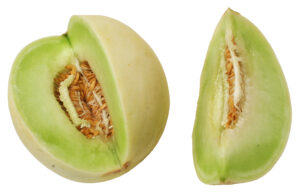
This is a round, medium to a large variety of melon with Smooth, pale-green to yellow skin and pale-green. juicy flesh. It’s the sweetest of all melons.
Icebox Melon
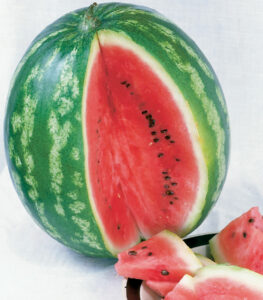
This is a founder variety of melon with a light-green rind. It has red, crunchy, juicy, sweet flesh.
Muskmelon
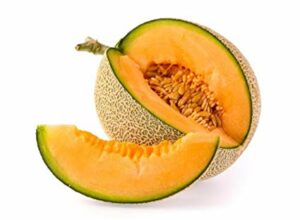
This is an oval, medium to a large variety of melon with thick, smooth, ribbed skin and pale green to pink, juicy flesh. Very sweet.
Ogen Melon
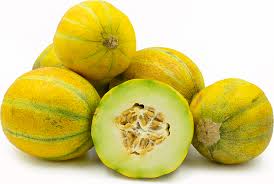
This is a small, round variety of melon. One ogen melon is just enough for one person. It has a thin, pale skin with green stripes and juicy, pale-green to cream-colored flesh. It’s one of the choicest one when available.
Orange Honeydew
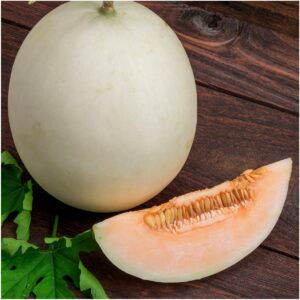
This round, medium to a large variety of melon has smooth, pale-green to yellow skin similar in appearance to a common honeydew. The flesh is blush to bright orange and very juicy. It is one of the sweetest.
Picnic Melon
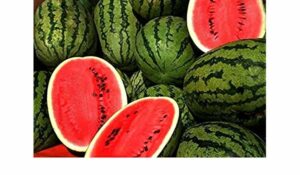
This is the largest variety of melon and it’s fit for a crowd. It has an oblong shape with dark green skin and generally has juicy, crisp, red flesh, although it may sometimes be orange or blush in color.
Rock Melon
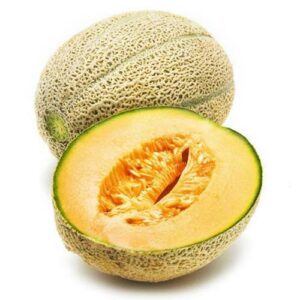
This is a small, oval variety of melon with beige skin. It seems that the rougher the skin, the sweeter the melon. It has orange-yellow, fragrant flesh.
Seedless Watermelon
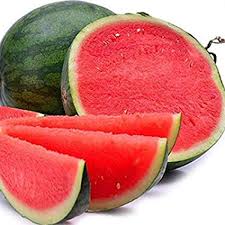
This is a hybrid variety of melon, bred to yield very few immature seeds or no seeds at all. Seedless fruit is generally much less nutritious, including a lower mineral content than seeded varieties.
Watermelon
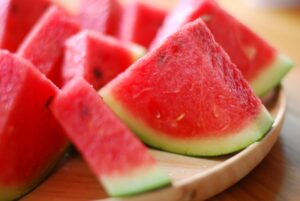
This is a larger, refreshing variety of melon that usually has crimson-red flesh. A perfect summer food, it is made of up to 96 percent water. The juice helps flush and balance the kidneys. Watermelons should have taut skin and should sound firm to knocking knuckles. (I have been known to live on watermelon and spirulina for much of the summer, feeling the best I ever have.)
Yellow Watermelon

This is a round, novel variety of melon with blush to bright-yellow flesh. It has pale to bright green skin with dark stripes. It’s very crunchy and sweet.
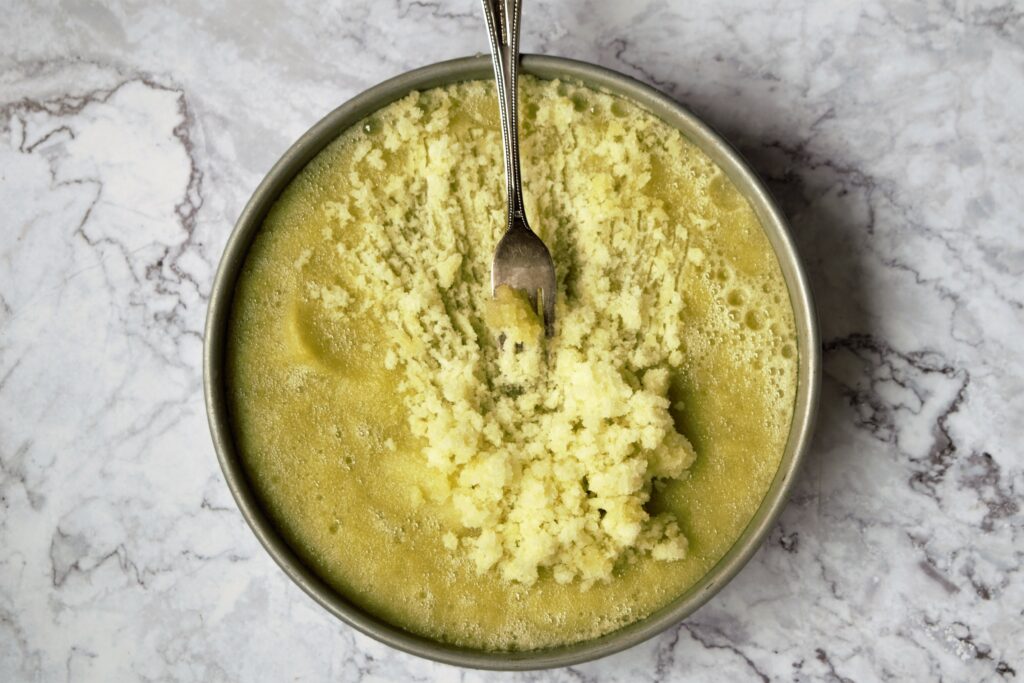
How to Pick a Good Melon
Choosing a good melon can be tricky. Some varieties, like cantaloupe, are very fragrant when ripe. Most should gently yield to the pressure of thumbs at the base.
Look for uniform skin and color. Avoid “dents” and green coloration. The surface should look generally symmetrical and pleasing.
Heavier melons tend to have more flesh and fewer seeds. Feel the heft of the fruit for uniform weight and for overall quality.
The stem under pressure needs to be a little “giving.” (Hard equals unripe and crunchy. Too soft equals overripe and mushy).
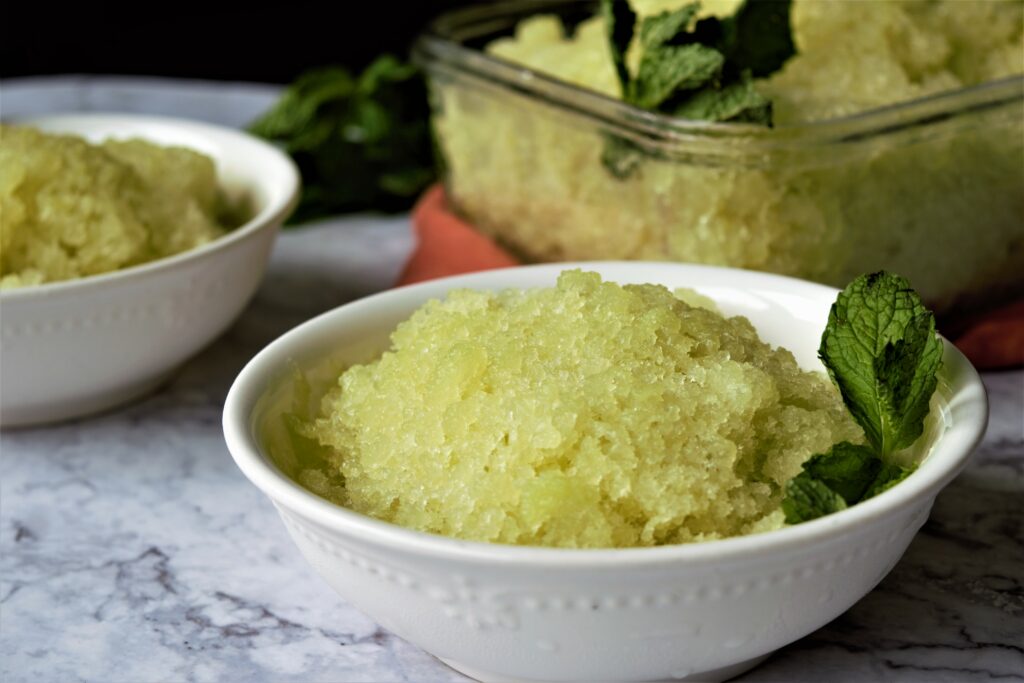
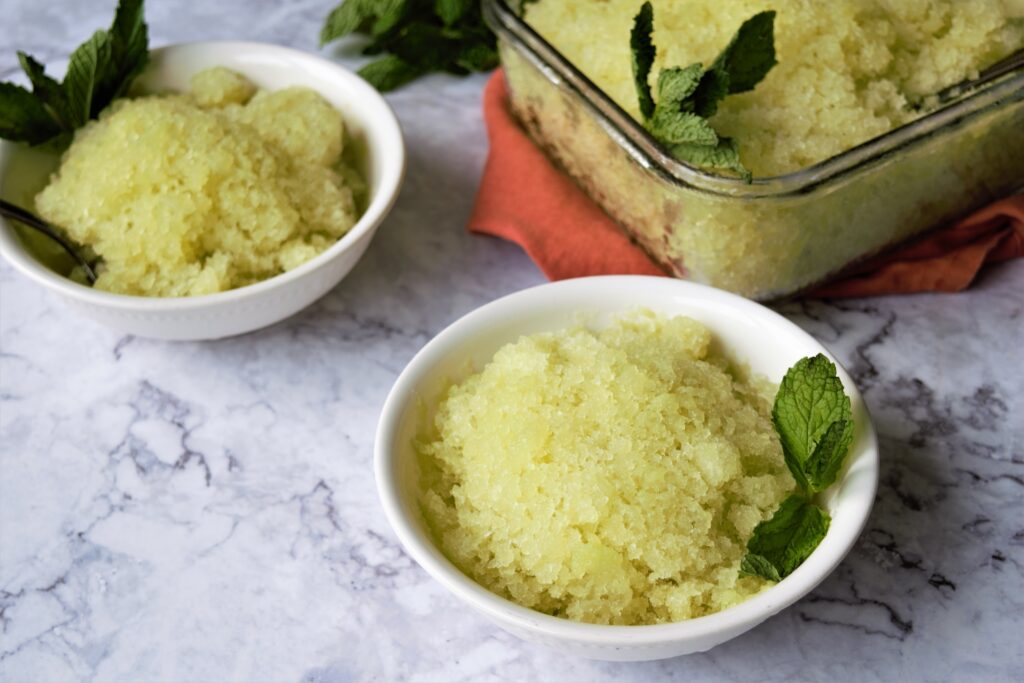
honeydew and mint granita ingredients
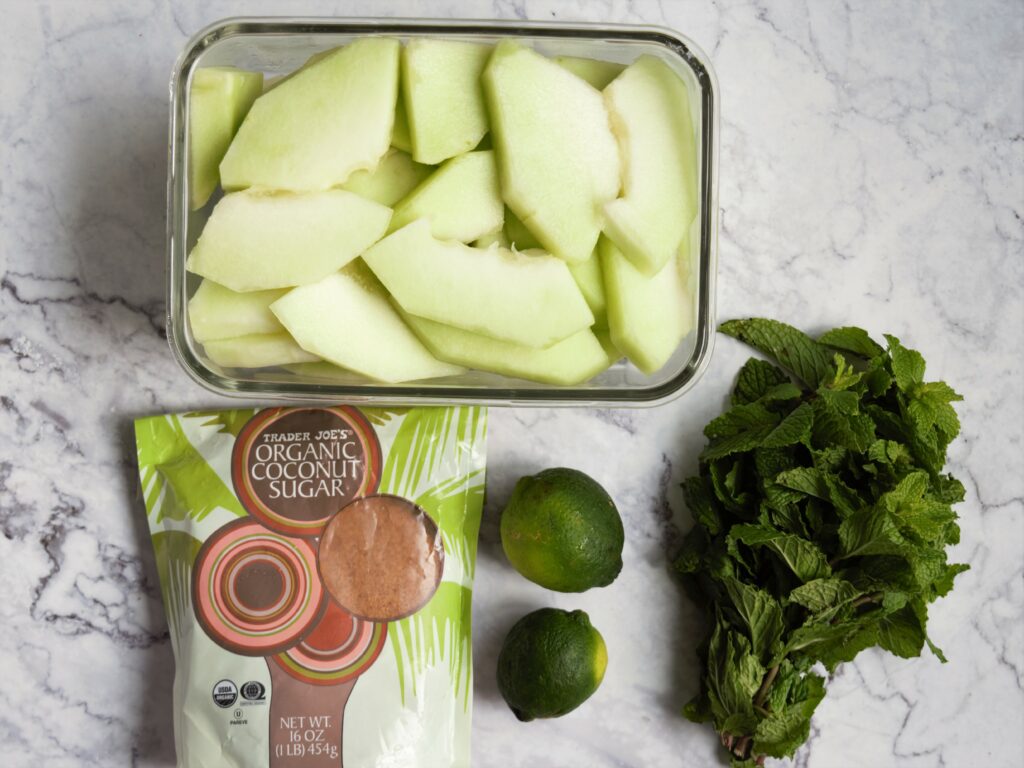
Honeydew and Mint Granita
Ingredients
- 1/2 cup coconut sugar or your favorite sugar
- 10 sprigs mint plus leaves for topping
- 3 cups chopped honeydew melon
- 1/4 cup fresh lime juice about 2 to 3 limes
Instructions
-
Bring the sugar and 3/4 cup water to a simmer in a small saucepan over medium heat, stirring until the sugar is dissolved. Remove from the heat and add the mint, pressing with a wooden spoon to submerge. Let cool completely, then remove the mint with a slotted spoon and discard.
-
Combine the mint syrup, honeydew and lime juice in a blender and puree until smooth. Pour into a 7-by-11-inch or 8-inch square metal baking dish.
-
Freeze the honeydew-mint mixture until ice crystals begin to form around the edges, about 45 minutes. Scrape the crystals toward the center of the pan with a fork, breaking apart any large chunks. Continue freezing, scraping every 30 minutes or so, until all of the granita has been scraped into flakes, 3 to 4 hours. Spoon into chilled bowls and top with mint leaves.
